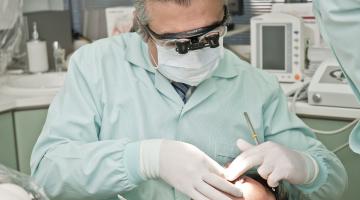Major Factors that May Affect the Ranking of Your Plastic Surgery Site
Medical search engine optimization (SEO) is essential in helping you reach suitable patients. It causes your website to become more visible to search engines, making it easier for patients to find you.
If you are a plastic surgeon and want to build your website’s online presence, you are reading the right piece. Below are seven reasons that may cause your medical practice’s SEO not to work.
-
Shortage of quality content
Backlinks are links placed in a website that direct readers to an authoritative website. In SEO, a page with a high number of quality backlinks is more likely to rank better.
However, focusing more on text does not automatically guarantee better website performance. If your writings are duplicated from another source, your SEO might be ineffective. The key to ranking better with writing is to be creative and have the original text.
-
Absence of backlinks in content
Backlinks are simply links from one website to a page on another. In SEO, a page with a high number of quality backlinks is more likely to rank better.
You may have a poor-ranking website if you do not know how backlinking works. A tool like SEMRush.com can help you understand the issue with your backlinks. In addition, it will provide insights on improving visibility through the correct backlinks.
-
Inappropriate use of backlinks
While you will need to use backlinks, you should avoid low-quality ones. Google may identify a low-quality backlink as spam and will not make your medical practice site rank well. Avoid backlinks from penalized sites, low-traffic sites, and sites with low domain authority and high spam scores, among other signs.
-
Excess use of keywords and anchor texts
Anchor texts that hold internal and external links are fundamental. However, spamming your anchor text with many keywords to rank higher will prove counter-effective.
Depending on your keywords, you can use your domain name, brand name, and company name.
-
Poor responsiveness of the website
User experience is crucial when it comes to SEO. If your website takes too long to load, chances are that you will experience a high bounce rate. When people leave your site, Google will see no reason to make your site visible.
For a plastic surgery website, this can be a problem. People who visit medical websites do so to get the information quickly so a slow website can be frustrating. In addition, most people do not have the patience to navigate through a complex interface or wait too long for pages to load.
To fix a slow website, we recommend you use Google Pagespeed Insights. “A slow website can result in users skipping to the next website. People generally want to gather information quickly and lose trust in a website if it takes too long to load,” says David Brenton of MedShark Digital.
-
Excess optimization of website or content
While having an optimized website is the goal, having over-optimized web pages can lower your rankings. Issues will arise if your plastic surgery website becomes spammed with too many keywords. Your pages become difficult to read, and this bad user experience will chase people away from your site.
-
Not implementing long-term SEO practices
Using SEO on a plastic surgery website is not a one-time thing. You must regularly update your site or blog with new SEO content to rank well. In addition, you can add new sections to the website that offer further information or services patients or visitors would find relevant.
In Summary
A medical practice with a website requires SEO to help reach optimal clients. However, some practices, or lack of practices, may hinder this. Correcting your SEO using these tips can go a long way in enhancing your digital methods.
More to Read:
Previous Posts:







